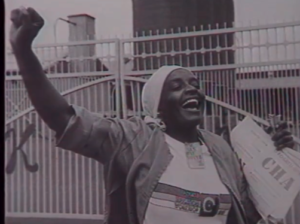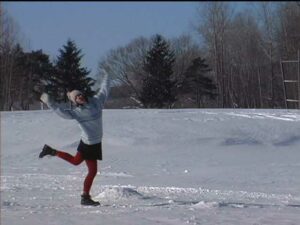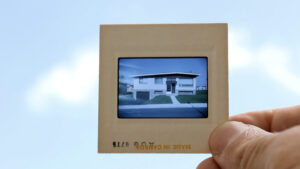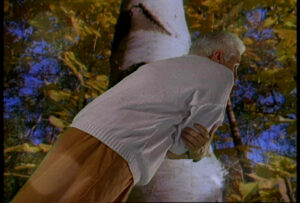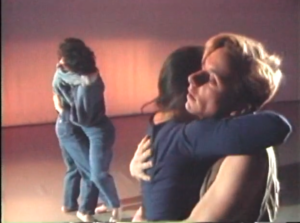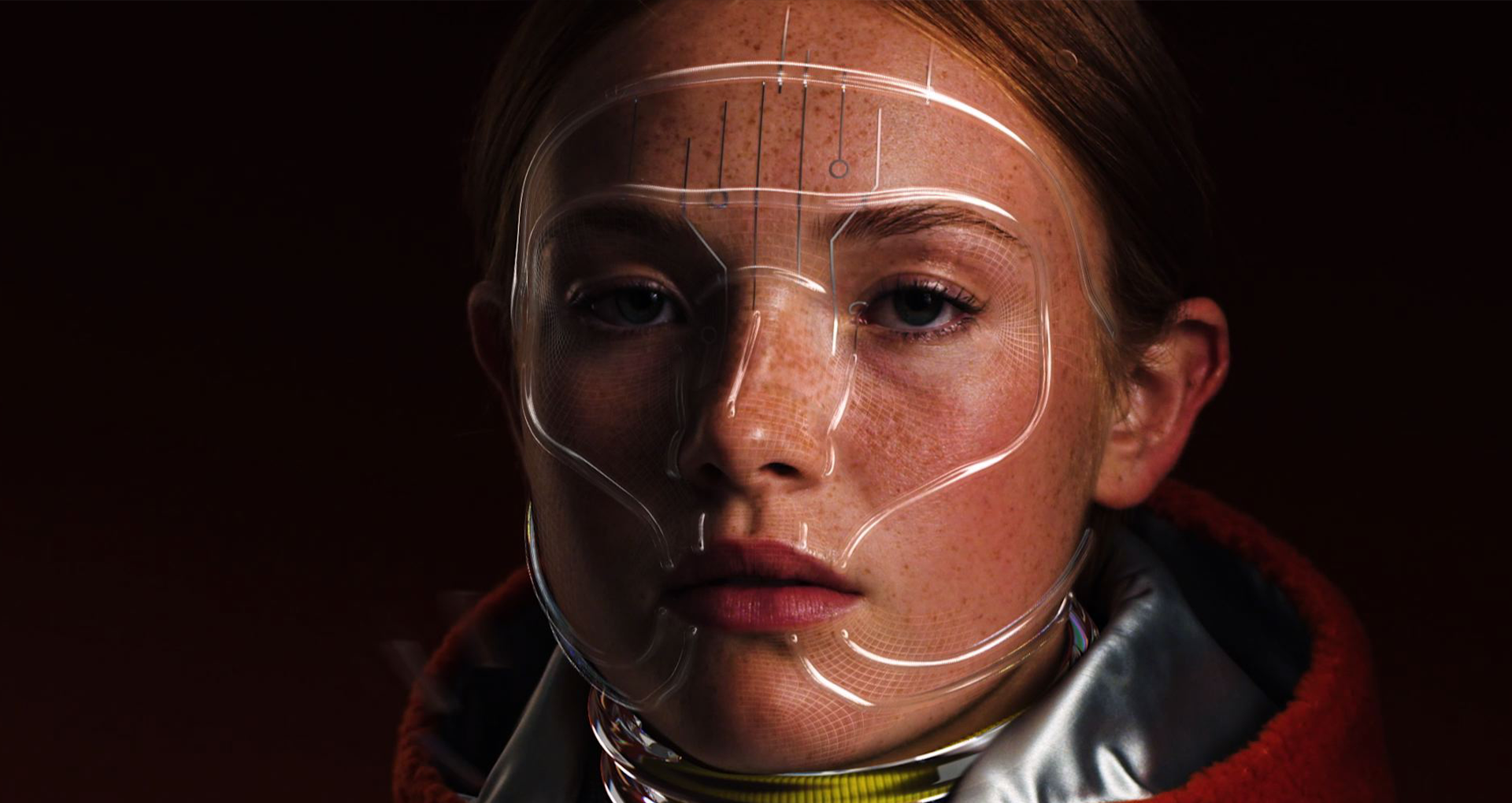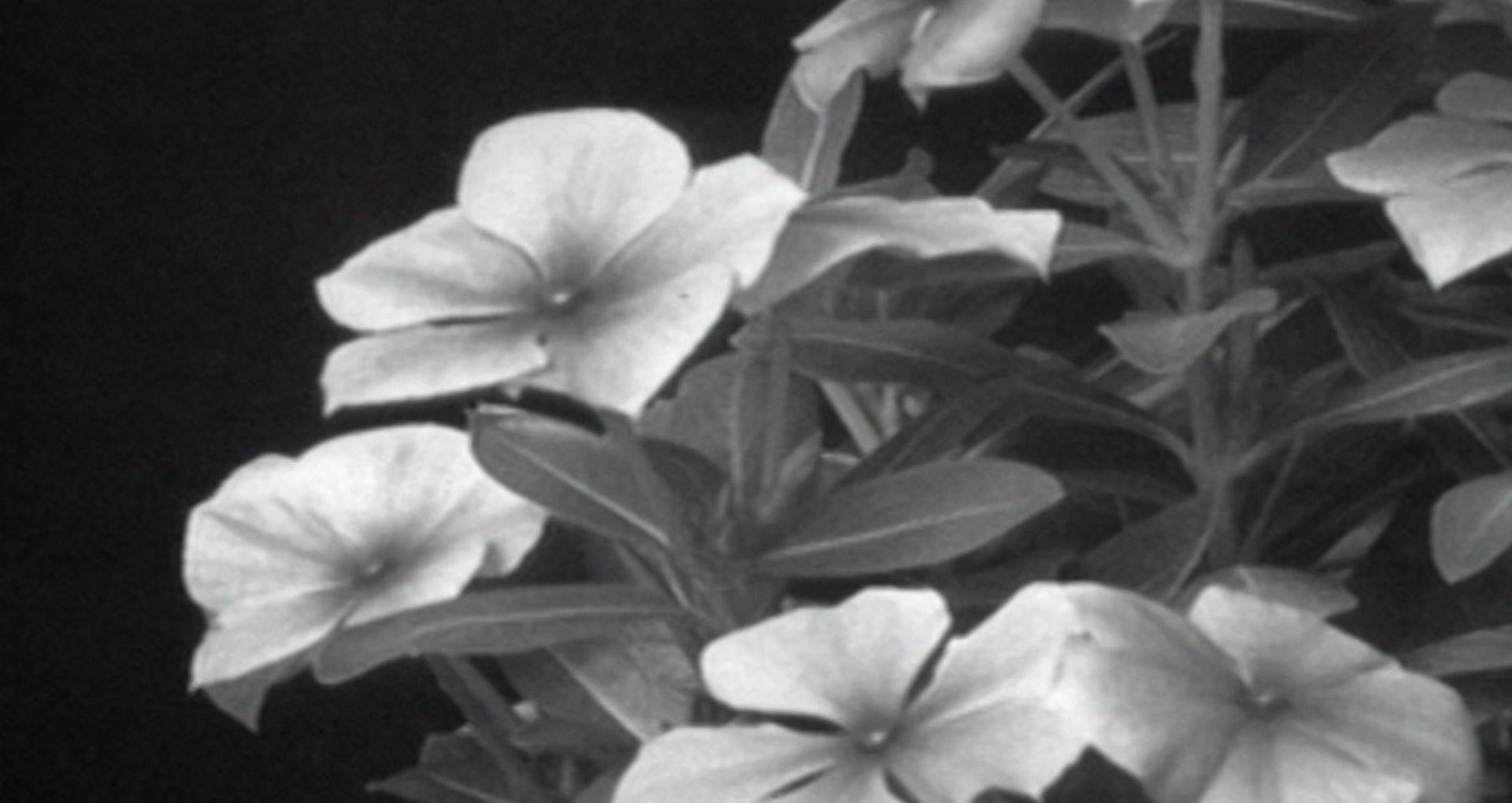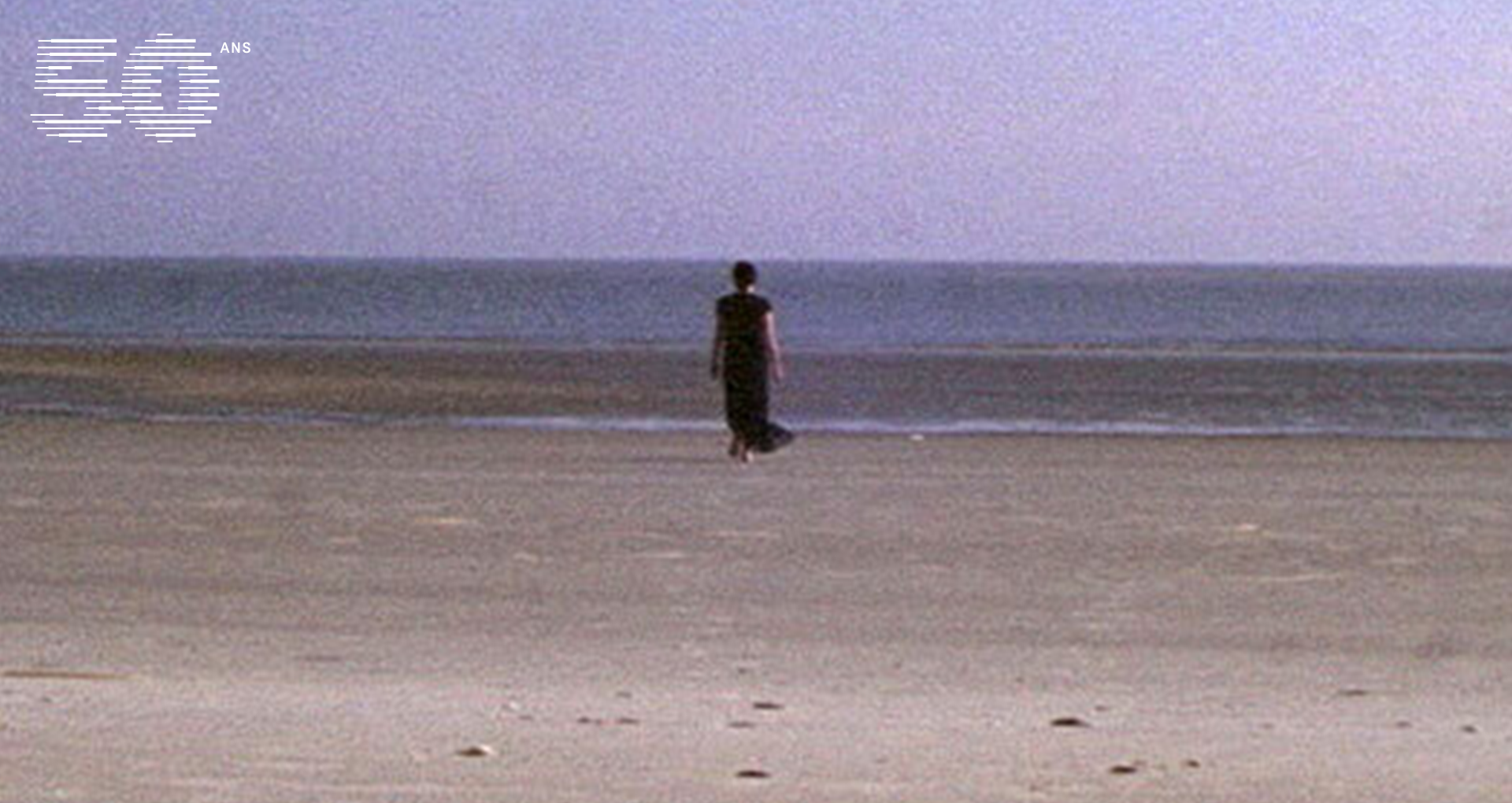
© Marie-Josée Saint-Pierre, Post-partum, 2004
LES VIDÉOGRAPHES AT THE CINÉMATHÈQUE QUÉBÉCOISE
PROGRAMMING
LES VIDÉOGRAPHES is a program created by Luc Bourdon in collaboration with Karine Boulanger, Denis Vaillancourt and the Vidéographe team.
Composed during the pandemic period, this project responds to the ultimate desire and need to gather in front of the big screen and see the video works of yesterday and today in the presence of the public and artists.
On November 28, 1971, Vidéographe officially opened its doors on rue Saint-Denis, in the heart of the Latin Quarter.
1971-2021… 50 years of history!
The project LES VIDÉOGRAPHES presents video works that revisit and celebrate 50 years of a singular history, that of our society as seen and lived by the “videographers”.
Thirty-four videos produced between 1971 and 2021 are deployed in five programs that bring together works from all decades and are put together according to themes that emerged during the research.
The five-screening cycle at the Cinémathèque allows not only a dialog between outstanding works, forgotten ones, and other defining gems of the history of video art, but also a discussion between artists, the public, and fans of video art.
PROGRAMS
LES VIDÉOGRAPHES – LE DEVOIR DE MÉMOIRE
Saturday, November 6, at 6:00 pm
From the very beginning of Vidéographe, the political scene has produced works, often made collectively, that are eager to offer an alternative to the official media.
As an introduction to this program, the 1972 homemade SELECTOVISION advertising illustrates the group’s philosophy of making videos documenting the social and political struggles broadcasted on the community television network.
The duty to act in the face of social and political injustices has thus led videographers to produce videos with the aim of raising our awareness. Today, we have a rich tradition of creating and disseminating militant works, especially those that focus on the international and local scene.
The four documents gathered in this program bear witness to four events that are as many objects of memory as scars inscribed in the history of the populations of South Africa, the United States, the former USSR, and Gaspésie.
PROGRAM (71 min)
- Vidéographe, Sélectovision, 1972, 3 min
- Jean Gagnon, Norman Thibault, Suzanne Côté, Nous sommes tous assis sur un volcan, 1988, 16 min
- Pierre Hébert, The Statue of Robert E. Lee in Charlottesville, 2018, 26 min
- Alisi Telengut, Nutag-homeland, 2016, 6 min
- Félix Lamarche, Terres fantômes, 2019, 20 min
► Screening followed by a discussion with THE VIDEOGRAPHERS of the selection.
LES VIDÉOGRAPHES – AU DELÀ DU RÉEL
Tuesday, November 9, at 6:30 pm
This program pays tribute to the imagination of videographers with an introduction guided by Robert Forget, founder of Vidéographe, who talks about the beginnings of the collective. Filmed on the premises of rue Saint-Denis, Robert Forget comments on the possibilities offered by the invention of the video medium.
Produced in 1972, the ENTRÉE EN SCÈNE video allows us to capture the atmosphere of the time and to understand Vidéographe’s objectives, that is to say, to experiment and appropriate the world of the image, and to make these media accessible to people.
Over the decades, this new tool will allow us to stage a world created by videographers who are anxious to go beyond reality and offer the public a magnified reality, manipulated or simply imagined according to their will. This imaginary takes shape here with a selection of short videos made by striking videographers.
PROGRAMME (78 min)
- Vidéographe, Entrée en scéne, 1972, 10 min
- Robert Morin, Lorraine Dufour, Le voleur vit en enfer, 1984, 20 min
- Manon Labrecque, La petite vision, 1994, 5 min
- Sylvie Laliberté, Oh la la du narratif, 1997, 14 min
- Stéphane Thibault, Le beau Jacques, 1998, 17 min
- Donigan Cumming, Petit Jésus, 1999, 3 min
- Kim Kielhofner, The coldest day of the year, 2020, 9 min
► Screening followed by a discussion with THE VIDEOGRAPHERS of the selection.
LES VIDÉOGRAPHES – SUR LE FIL DU TEMPS
Wednesday, November 24, at 9:00 pm
The Vidéographe Project was born and developed using video technology. 50 years later, with nearly 2,300 works by hundreds of videographers, we come across a multitude of subjects, viewpoints, and aesthetics.
This selection of short videos allows you to see and hear the works of some prominent videographers of the collection. As an introduction, a video shot in 1972 documenting the use of the first generation of a video editing bench, either an electronic machine to cut image time and sound, or a real feat for the time.
PROGRAMME (67 min)
- Vidéographe, L’éditomètre, 1972, 3 min
- Jeanne Crépeau, Gerçure, 1988, 7 min
- Suzan Vachon, Palempseste sentimental, 1989, 7 min
- Chantal duPont, Trois tours et puis s’en vont, 10 min
- Nelson Henricks, Le temps passe, 1998, 7 min
- Nathalie Bujold, Emporium, 1999, 11 min
- Monique Moumblow, Sleeping car, 2020, 6 min
- Frédéric Moffet, Adresse permanente, 2014, 7 min
- Nayla Dabaji, Rumeurs, 2015, 9 min
► Screening followed by a discussion with THE VIDEOGRAPHERS of the selection.
LES VIDÉOGRAPHES – LE GAI SAVOIR
Thursday, November 25, at 7 pm
The LGBTQ+ cultural affirmation movement was part of Vidéographe’s collection in the early 1980s with the first works by Marc Paradis. It was also the decade of AIDS that ravaged the community here and elsewhere.
This program bears witness to this era, initially relying on videos made by Marc Paradis, Esther Valiquette, and Dennis Day. Works that speak of a lived experience and the quest for an identity that has since evolved greatly.
The works produced in the 2000s, through its contrasts and resonances, stimulate the reflection on the subject – this joyful knowledge which occupies a prominent place in the Vidéographe collection – while making it possible to evaluate the path traveled, the evolution of the discourse, its similarities, and its differences.
PROGRAMME (68 min)
- Groupe Épopée, Maxime, 2011, 5 min
- Marc Paradis, Le voyage de l’ogre, 1981, 24 min
- Esther Valiquette, Le récit d’A, 1990, 20 min
- Dennis Day, Heaven or Montreal : The unfinished video, 1990, 5 min
- Owen Eric Wood, Made Up, 2008, 5 min
- Philippe Hamelin, Lèvres bleues, 2020, 9 min
► Screening followed by a discussion with THE VIDEOGRAPHERS of the selection.
LES VIDÉOGRAPHES – LE THÉÂTRE DES CORPS ET DES IMAGES
Friday, November 26, at 5:00 pm
As soon as the first video cameras appeared… Performers, choreographers, playwrights, musicians, photographers, as well as visual artists, quickly adopted this new capture tool allowing them to experiment with their own images. Thus, the worlds of performance, music, and dance have actively produced videos testifying to their practices.
The community of performers and video artists could find a fertile playground complementary to their practices. A vast laboratory where everyone can explore their own image, identity, art, or body memory.
This program of short works begins with a performance filmed and realized by the pioneer in the field, the video artist marshalore.
PROGRAMME (66 min)
- marshalore, Street Actions, 1977, 6 min
- Jo Lechay, La compagnie de danse Jo Lechay, 1982, 12 min
- Marie-Josée Saint-Pierre, Post-partum, 2004, 12 min
- Aurélie Pedron, Mémoire des choses qui tombent, 2009, 10 min
- Lydie Jean-Dit-Panel, Cela avait commencé par un accident, 2014, 9 min
- Sylvanie Tendron, Vampire domestique, 2016, 8 min
- Xavier Curnillon, À tes pulsions, 2017, 9 min
► Screening followed by a discussion with THE VIDEOGRAPHERS of the selection.




